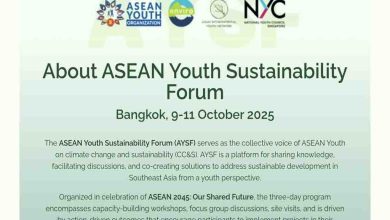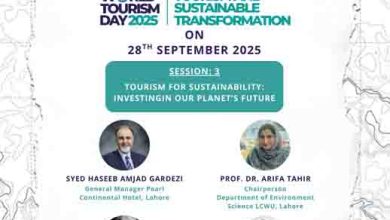Urgent Water Crisis: Pakistan’s Battle for Survival Amid Indus Water Treaty Suspension
Pakistan faces a severe water crisis after India's Indus Water Treaty suspension. Learn how political unity and smart water management can save Pakistan’s future.
The Pakistan water crisis has reached a critical tipping point. Following India’s unprecedented suspension of the Indus Water Treaty, Pakistan must urgently resolve internal disputes to protect its people’s future. Domestic political squabbles, such as the Cholistan canal controversy, distract from existential threats like water scarcity, crumbling irrigation systems, and climate change. The time for decisive, united action is now.
India’s Suspension of the Indus Water Treaty: A Dangerous Shift
On the heels of regional tension, India’s suspension of the Indus Water Treaty is a severe blow to Pakistan. The treaty, historically safeguarding shared water resources, has been a lifeline for Pakistan’s agriculture, drinking water, and energy production. Its suspension marks a new era of vulnerability for Pakistan, forcing the country to address its internal fragilities immediately.
Rather than focusing on political infighting, Pakistan needs to protect its water rights through strong, unified governance and sustainable water management strategies.
Learn more about the Indus Waters Treaty on Britannica.
Cholistan Canal Dispute: Internal Divisions Exposed
In early 2025, the government launched the Cholistan Canal Project under the Green Pakistan Initiative. It intended to utilize sporadic floodwaters for desert irrigation. However, this move sparked fierce opposition, especially from Sindh, where chronic water shortages already threaten millions.
Key issues included:
-
Ignoring the 1991 Water Apportionment Accord.
-
Bypassing the Council of Common Interests (CCI).
-
Increasing distrust among provinces.
Punjab’s leadership offered vague reassurances, but critics — including PPP chairman Bilawal Bhutto — saw this as an attempt to undermine Sindh’s rights. The dispute escalated into political brinkmanship, putting Pakistan’s federal unity at risk.
Sindh’s Protest and Legal Battle
Sindh’s reaction was swift and intense:
-
Unanimous resolution in the Sindh Assembly condemning the canal project.
-
Threats by Bilawal Bhutto to pull PPP support from the federal coalition.
-
Protests, court petitions, and calls for appointing a federal IRSA member from Sindh.
Meanwhile, political leaders like Rana Sanaullah downplayed the concerns, labeling them as “technical issues.” Punjab’s Azma Bokhari insisted that Punjab had acted as an “elder brother” to other provinces, further inflaming tensions.
Yet, the Sindh High Court intervened, highlighting flaws in IRSA’s member appointments and demanding corrective action. Without addressing these legal and constitutional grievances, Pakistan risks eroding the very frameworks meant to ensure national unity.
The True Cost of Political Infighting
While political players argue, the real cost is felt by the people:
-
30–40% of diverted water is lost to seepage and evaporation due to decaying infrastructure.
-
The Kotri Barrage flow has halved, signaling severe ecological strain.
-
Tarbela Dam has been hovering near dead storage levels.
-
Farmers are forced to invest in costly tubewells, deepening rural poverty.
-
Pakistan faces extreme water stress, withdrawing over 60% of available resources annually.
Pakistan’s Global Climate Risk Index rank — 5th most vulnerable country — underscores the urgency. Erratic monsoons, rising temperatures, and glacial melt are already wreaking havoc on agriculture, livelihoods, and health.
See Pakistan’s Global Climate Risk Ranking on Germanwatch.
Affordable Solutions to Strengthen Water Security
Instead of divisive mega-projects, Pakistan can act now by implementing cost-effective, unifying solutions:
Drip and Sprinkler Irrigation
-
Reduce water usage by up to 60%.
-
Boost agricultural productivity.
Canal Lining and Desilting
-
Recover 30% of lost water.
-
Improve downstream water availability.
Rainwater Harvesting
-
Sustain Cholistan’s communities.
-
Recharge groundwater and reduce river stress.
Biosaline Agriculture
-
Grow salt-tolerant crops.
-
Create sustainable livelihoods without straining freshwater resources.
Each of these solutions costs a fraction of a mega canal’s budget and can create national consensus rather than division.
Conclusion: Choosing Unity Over Division
The Pakistan water crisis is not just about projects or political battles — it’s about survival. The Cholistan canal controversy illustrates how easily vital national issues can be sidelined for political gains.
Pakistan’s leadership must urgently:
-
Respect the 1991 Water Apportionment Accord.
-
Strengthen interprovincial dialogue through the Council of Common Interests.
-
Invest in science-based, low-cost solutions.
-
Focus on rehabilitating existing irrigation infrastructure.
If Pakistan continues on its current divisive path, the real loser will not be a political party — it will be the people of Pakistan and their future. Water security is a national imperative. The time to act, together, is now.
Author: Former Head of Citigroup’s Emerging Markets Investments and author of ‘The Gathering Storm’
Published in: Dawn, The Business and Finance Weekly, April 28, 2025
Internal Links:
External Links:







